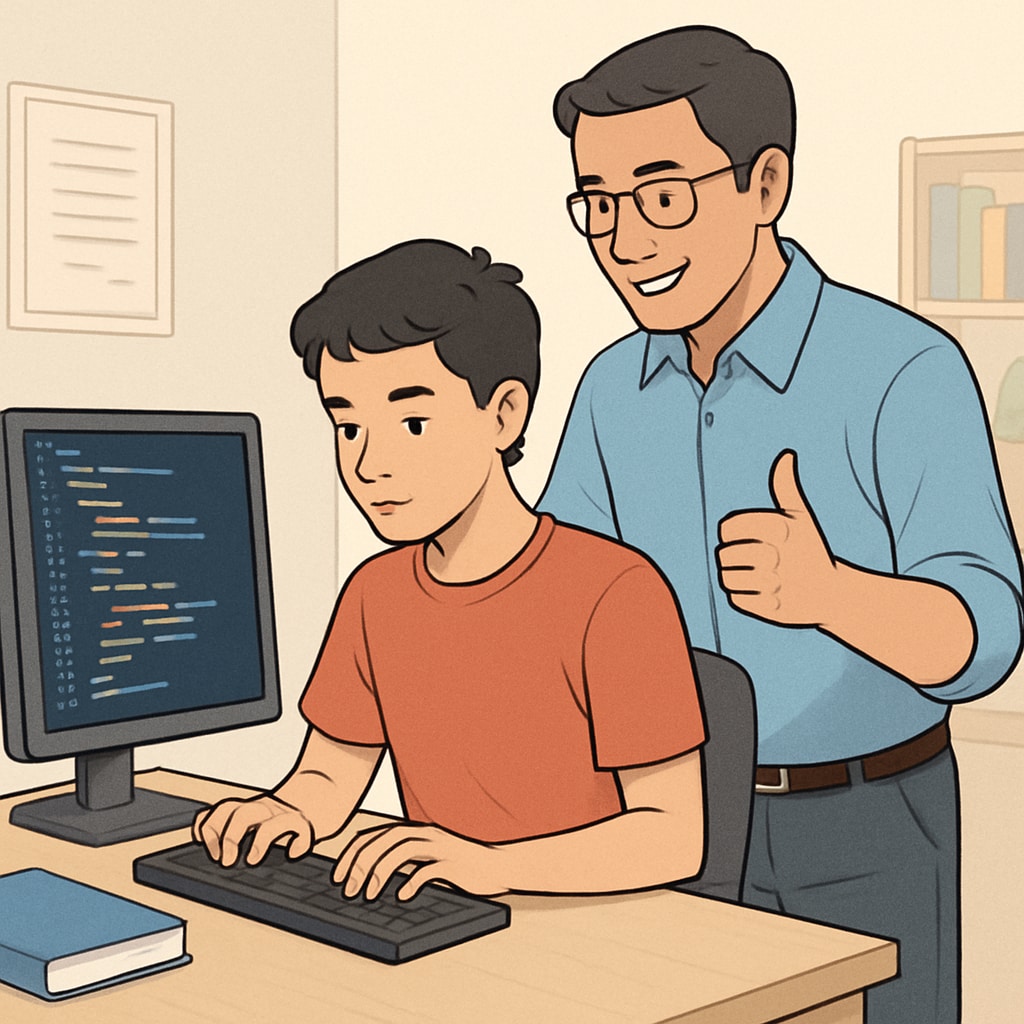Helping teenagers lacking learning motivation but possessing specific interests is a common challenge in education. By combining education, motivation, and family support, teens can transform their passions, such as programming or sports, into tools for holistic growth and learning. This article provides practical strategies to activate their learning engines and guide them toward healthy habits.
Understanding the Root of Low Motivation
Lack of motivation often stems from various factors, including academic pressure, lack of connection to subjects, or feelings of inadequacy. However, most teenagers possess specific interests or hobbies that excite them. These interests, when leveraged properly, can serve as powerful motivators. For instance, a teen passionate about coding might lack interest in math but may become more engaged if they see how math enhances their programming skills.

Using Interests as the Foundation for Learning
One of the most effective ways to encourage learning is by aligning educational tasks with a teen’s interests. Here’s how parents and educators can use interests as a foundation:
- Connect School Subjects to Their Passion: Show how subjects like science, literature, or math are relevant to their interests. For example, explain the physics behind a favorite sport or the storytelling techniques in video game design.
- Encourage Project-Based Learning: Allow teens to work on projects aligned with their hobbies, such as building a robot or creating a blog, which integrates multiple skills.
- Introduce Role Models: Share stories of successful individuals who turned their interests into careers, such as software developers or athletes.
By making learning relevant, teens are more likely to see value in their education and invest in it actively.
The Role of Family Support in Building Healthy Habits
Family support plays a pivotal role in a teen’s development. A nurturing environment not only enhances motivation but also fosters resilience and confidence. Here’s how families can contribute:
- Set Realistic Expectations: Avoid overwhelming teens with high expectations. Instead, focus on small, achievable goals and celebrate their progress.
- Provide a Structured Routine: Help establish a daily routine that balances learning, interests, and leisure time.
- Encourage Open Communication: Create a safe space for teens to express their struggles and aspirations without judgment.
With consistent encouragement and understanding, families can create an environment where teens feel supported in their learning journey.

When to Seek Professional Guidance
Sometimes, despite best efforts, a teen’s lack of motivation persists. In such cases, seeking professional guidance can be beneficial. Educational psychologists, counselors, or mentors can help identify underlying issues and provide tailored strategies. For example, cognitive-behavioral techniques or coaching sessions can help teens develop a growth mindset and overcome barriers to motivation.
Encouraging Holistic Development
While fostering a teen’s specific interest is crucial, encouraging holistic development is equally important. A well-rounded individual balances their passion with other life skills. Here are some tips:
- Promote Physical Activity: Encourage participation in sports or outdoor activities for physical and mental well-being.
- Develop Social Skills: Facilitate group projects or clubs where teens can collaborate with peers.
- Explore New Interests: Introduce them to new hobbies or areas of study to broaden their horizons.
By nurturing multiple dimensions of their personality, teens gain the tools they need to adapt and thrive in various environments.
Conclusion: Unlocking Potential Through Support
Helping teens with specific interests but low learning motivation requires a delicate balance of education, motivation, and family support. By aligning learning tasks with their passions, providing a structured yet flexible environment, and encouraging holistic growth, parents and educators can unlock their potential. Remember, every teen has unique strengths waiting to be discovered and nurtured.
For additional insights into strategies that support teen development, visit authoritative resources like the Motivation article on Wikipedia or explore parenting tips on Britannica’s Parenting Guide.
Readability guidance: Use short paragraphs, bullet points, and clear transitions. Ensure ideas flow logically and avoid jargon for clarity.


